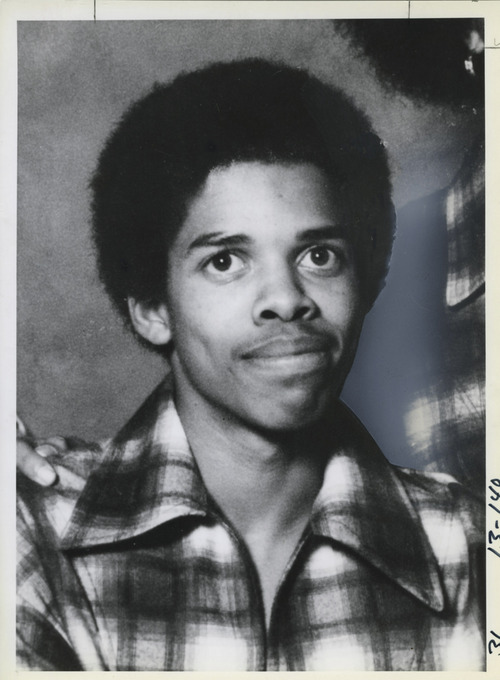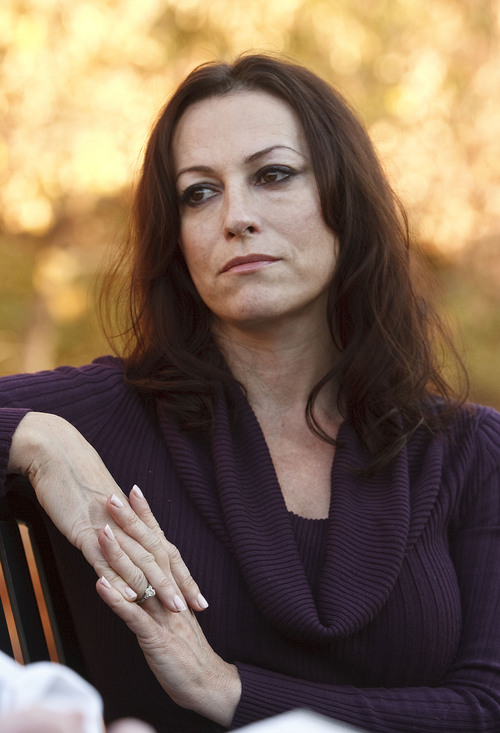This is an archived article that was published on sltrib.com in 2013, and information in the article may be outdated. It is provided only for personal research purposes and may not be reprinted.
Barring a last-minute stay, Missouri will execute Joseph Paul Franklin by lethal injection shortly after midnight Wednesday — 16 years after he received the death penalty for slaying Gerald C. Gordon outside the Brith Sholom Kneseth Israel Congregation synagogue in Richmond Heights, Mo.
While the 63-year-old Franklin's life may end, heartache will go on for those whose lives he disrupted so tragically even as they seek solace in this final event.
Johnnie Mae Martin of Salt Lake City will visit the grave site of her son, David, who was 18 when Franklin fatally shot him and Ted Fields, 20, as they left Salt Lake City's Liberty Park with two white female friends on Aug. 20, 1980.
"Nothing would bring back the people that that man has destroyed and the homes he's torn up," Martin said. "But I felt like when they gave him the life sentence here for killing David and Ted, that was justifiable because he couldn't hurt anyone else."
Terry Elrod Jackson-Mitchell, who was wounded in that attack and also lives in Utah, will meet with the counselor who is helping her sift complex feelings about forgiveness. She then will take to the mountains, where she feels most connected to the universe. There, Jackson-Mitchell will meditate and visualize Franklin's spirit moving from darkness to light.
"I keep thinking of his energy as being heavy and dense and dark and something opposite of light," she said. "I've been asking people to visualize light at that time. … I just want this to be about healing instead of a massacre."
In Alabama, Lori Gresham will hold fast to the image of the father she came to know only through letters, telephone calls and occasional gifts.
The daughter of Franklin's second wife, Gresham was 11 months old when her father went to prison. She only discovered when she was 18 the full extent of the crimes that landed him on death row.
"By then I had established a relationship with him and loved him," she said. "People see him as a monster, but he tried to be a father to me."
Through the years, she made several plans to visit him — plowing through paperwork, saving up money — but, every time, one thing or another derailed those efforts.
They never met in person again and only recently renewed telephone contact after a two-year lull. Gresham learned a couple of weeks ago of her father's execution date.
She plans to stay away, to "just leave it be."
"It would be the first time," she said, "but it would always be the last time."
Like so many others, she can't make sense of her father's crimes. "I just know he has extreme hatred toward black people," Gresham said. "In this world, there are a lot of people who have hatred toward each other. That's just how it is. His just happened to be so intense he acted on it. … There is no sense you can make out of it, but you can't [be] killing people just because you don't like how they look."
—
A three-year killing spree • At the time of Franklin's murderous spree between 1977 and 1980, he considered African-Americans and Jews enemies of the white race. He viewed "race mixing" of African-Americans and whites a sin.
Franklin, who grew up in Mobile, Ala., now says he was "out of my gourd" at the time of the killings and regrets his actions. In a Salt Lake Tribune interview last week, Franklin said he still considers "race mixing" a sin, but now sees it as "none of my business" and would not commit violence to stop it.
He apologized to his victims and their families. Asked what others might take away from his experience, Franklin said: "One thing is that it is always possible to change. When you get somebody as hard core as I was before, it is pretty much a miracle."
In all, Franklin has been found guilty, confessed to or been linked to approximately 21 sniper-style killings — many, such as the ambush in Richmond Heights, meticulously planned.
According to court documents, Franklin scouted several synagogues in the St. Louis area before settling on Brith Sholom. He filed the serial number off a rifle he purchased about a month earlier in Texas and bought a guitar case in which to conceal the weapon. He also bought a bicycle to flee the scene.
Before the shooting, Franklin cleaned his fingerprints from the weapon and guitar case, which he hid in some bushes near the synagogue. He also pounded several 10-inch nails into a nearby telephone pole to use as a gun rest.
On Oct. 8, 1977, shortly after 1 p.m., Franklin fired into a crowd of people leaving the synagogue. Gordon was wounded and later died. Two other men were injured.
Franklin confessed to the shooting in 1994 while serving six life sentences — including two given for violating the civil rights of Martin and Fields — at the federal prison in Marion, Ill.
Franklin, who represented himself during the 1997 Missouri murder trial, asked the jury to sentence him to death and it did.
Franklin initially waived his right to appeal his sentence but later changed his mind.
His appeal focused on a competency evaluation and mental-health assessment conducted before his trial. He also argued that his confession came under pressure because of death threats he'd received in prison.
One psychiatrist who evaluated Franklin found he was a paranoid schizophrenic and thus incompetent. The other reported that Franklin suffered paranoid personality disorder — which contributed to his beliefs about African-Americans and Jews as well as a notion that "spirit guides" directed his actions — but "had excellent insight into his legal situation."
In 2000, the Missouri Supreme Court found the latter psychiatrist more credible and upheld the lower court's finding that Franklin was competent. It also upheld Franklin's death sentence.
The court did not set a date for the execution until August as appeals — some focused on the drugs Missouri uses for its lethal injection — played out.
—
A chance to avoid execution • Tom Jones, an attorney in Layton, who briefly represented Franklin in 1981 as he faced first-degree murder charges for the deaths of Fields and Martin, said he "could have avoided this altogether."
At that time, law enforcement and U.S. Department of Justice officials across the country wanted Franklin's help solving other murders, some of which he had made statements about while jailed.
"If he had agreed to make a full disclosure, they were going to arrange for him to do time in Idaho, where there were no black prisoners at the time," Jones recalled. And the death penalty would have been off the table.
But Franklin refused to cooperate.
"He brought this all on himself," Jones said. "Nobody wanted to see him executed."
Twitter: Brooke4Trib





